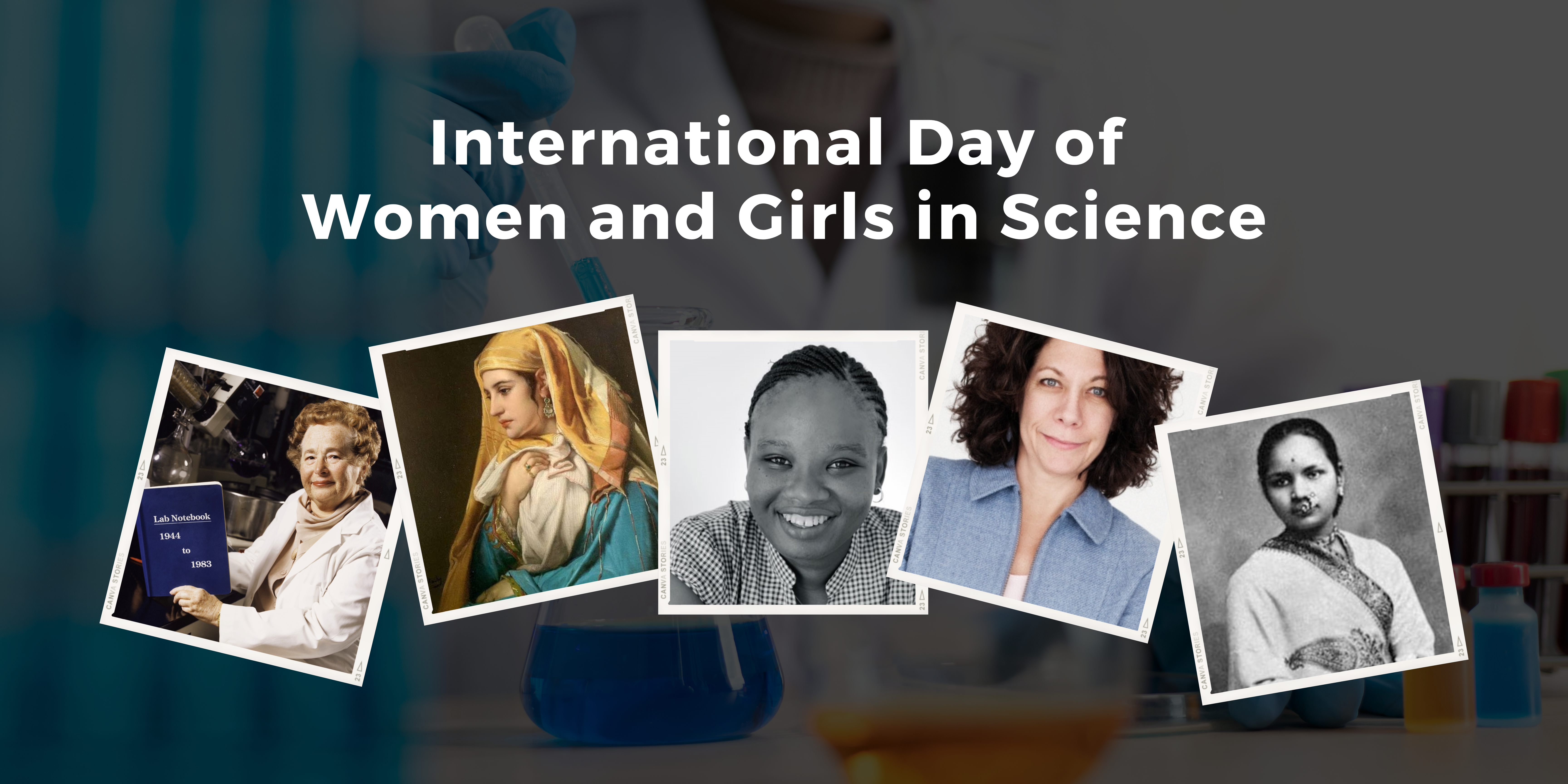
10 Feb Which woman in health or science inspired you to get into STEM?
A significant gender gap has persisted throughout the years at all levels of science, technology, engineering and mathematics (STEM) disciplines all over the world. Even though women have made tremendous progress towards increasing their participation in higher education, they are still under-represented in these fields. The International Day for Women and Girls in Science aims to connect the International Community to Women and Girls in Science, strengthening the ties between science, policy, and society for strategies oriented towards the future.
On the International Day for Women and Girls in Science, and every day, we celebrate the women PhD candidates at AIGHD who have followed their calling and dedicated their careers to work in the fields of health and science. But what, or more importantly, who inspired these women to pursue such a career?
We asked some of the women PhD candidates at AIGHD:
Which woman in health or science inspired you to get into STEM?
Someone I find very inspiring is Gertrude B. Elion. She was a biochemist who also contributed to the development of the first treatment for HIV.
She really had to overcome a lot in the (then) male-dominated field of science, but ultimately, she was recognized as a pioneering researcher. Her appreciation for music, mainly opera, and traveling are also proof that it is possible to have a balanced life that includes both professional and personal pursuits.
As a woman in science, I am particularly moved by Elion’s advocacy for women in the field and her belief that all individuals, regardless of gender, have the ability to make significant contributions to science.
-Manon Vanbellinghen
Fatma al-Fihri’s innovation, courage, and determination to work inspire me. She is a Tunisian-born Muslim scholar who founded the Al-Qarawiyyin Madrasa, which was accepted as the first university in the world by the United Nations Educational Scientific and Cultural Organization (UNESCO), in the Kingdom of Morocco in 859.
I find her example striking because it reminds us that, contrary to popular belief, Muslim women are one of the core elements that guide society, education and social life, rather than being neglected members of society.
-Nursena Aksünger
Professor Melissa Kapulu is a Zambian scientist currently working as the Principal Research Investigator at the KEMRI-Wellcome Trust Research Programme in Kilifi, Kenya. She holds a degree in Molecular biology and genetics, an MSc in Immunology of Infectious Diseases, and a PhD in Vaccinology. Her research group conducts research on understanding both natural and vaccine-induced immunity for the design, development, and evaluation of vaccines with a focus on Malaria and Shigella.
She inspires me as she is among the few female Zambian scientists that have excelled in health research and leads her own research group, doing amazing work on human infection challenge (HIC) studies. She is widely published in leading journals and holds Wellcome Trust and EDCTP grants. It was an honor to meet her when she visited our organization in 2019.
-Mwelwa Chibuye
Bonnie Bassler gave the “anatomische les” in 2017. She explained how bacteria talk, so called quorum sensing, in such a clear and exciting way. At the end of her work, she expressed her gratitude for her great team that inspire her every day. It was really touching. At that moment, I wanted to be her.
-Victoria Janes
There have been a lot of incredible women who have inspired me during the different phases of my career. My all-time favourite has been Dr Anandibai Joshi – the first Indian female doctor. Her grit to complete her medical education overseas in an era when female education was never even spoken of or even advocated for remains commendable! She will always be a true inspiration to millions of Indian women stepping into medicine even today!
-Sneha Kotian
